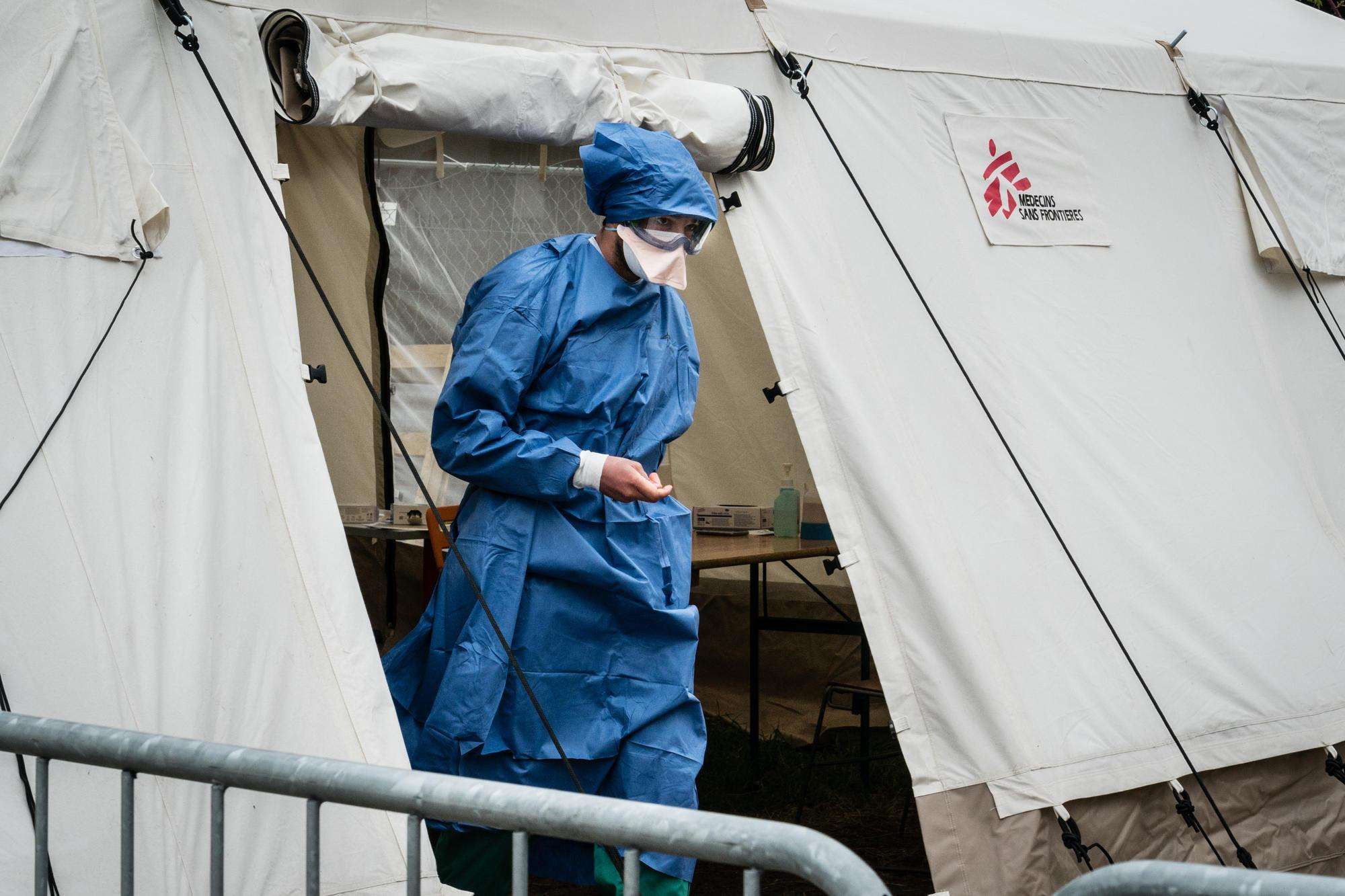As a medical humanitarian organization with projects and teams around the world, MSF finds itself in the midst of a pandemic that will touch each and every one of us, our families, our friends, our communities, and, of course, the people we serve. As we plan our response, it is vital that we take time to look out for each other and offer support and solidarity.
As I write, COVID-19 has already impacted many countries all over the world and will continue affecting more communities in the coming weeks and months. As this crisis unfolds, we must both bear witness to and support the response where we can and how we can, building on our long experience as an emergency organization and our expertise in responding to major epidemics.
A key priority is to keep our regular medical programs running for the hundreds and thousands of patients we care for and for the extremely vulnerable communities we help around the world.
In most countries where MSF works, we are coordinating with the World Health Organization and ministries of health to see how we can help, both with preventing the spread of the coronavirus caring for potentially large numbers of COVID-19 patients.
Additionally, we are providing training and increasing efforts on infection prevention and control measures for health facilities and the protection of health staff and patients. We are doing our best to maintain services and prepare teams in our programs for what may come. Of particular concern are people who live in precarious conditions where there may be overcrowding, little access to water and sanitation, and a lack of health care services.
We face massive challenges. Travel bans will complicate the travel and placement of experienced international staff where we need them. Ensuring available medical supplies—especially personal protective equipment— for both our regular medical programs and any COVID-19 responses will be difficult. There are also uncertainties about how this crisis will impact the world’s economies, our own finances, and the capacity of some donors to continue supporting us. But with our energy and the continued support of the MSF community, I am convinced we will find solutions to these issues.
As we rise to meet these challenges, we must also raise our voices publicly even louder than usual to ensure that vulnerable and invisible populations are not forgotten while COVID-19 grabs all the attention. There is still an ongoing Ebola outbreak in Democratic Republic of Congo, with new cases reported just as it appeared the end was in sight. People here are still facing multiple other crises, including a massive and ongoing outbreak of measles. Even worse, there are people in DRC and many other countries who have no access to health care at all—and who we can’t reach.
We also have to use our influence to promote actions of solidarity. As the virus knows no borders, the collective reaction to this pandemic must also be managed without borders. Supplies must be sent to those most in need.
Health workers must be protected so they can sustain the response over weeks and months. Sharing of data, knowledge, resources and health personnel can be game changers in enabling national health services to cope.
In the struggle to contain this pandemic, no one should be left behind.
Dr. Christos Christou, international president of Doctors Without Borders/Médecins Sans Frontières (MSF)
In the race to provide new tools to deal with the disease, the need for diagnostics, effective treatments, and a vaccine cannot become the latest auction for the pharmaceutical industry, sold to the highest bidder. In the struggle to contain this pandemic, no one should be left behind.
COVID-19 is a global health emergency and responding to emergencies is in MSF’s DNA. Taking care of those in need, the sick and vulnerable—that’s what MSF does best. We have brilliant and dedicated teams around the world. With your support, we’re getting down to work and making sure we play our part.






